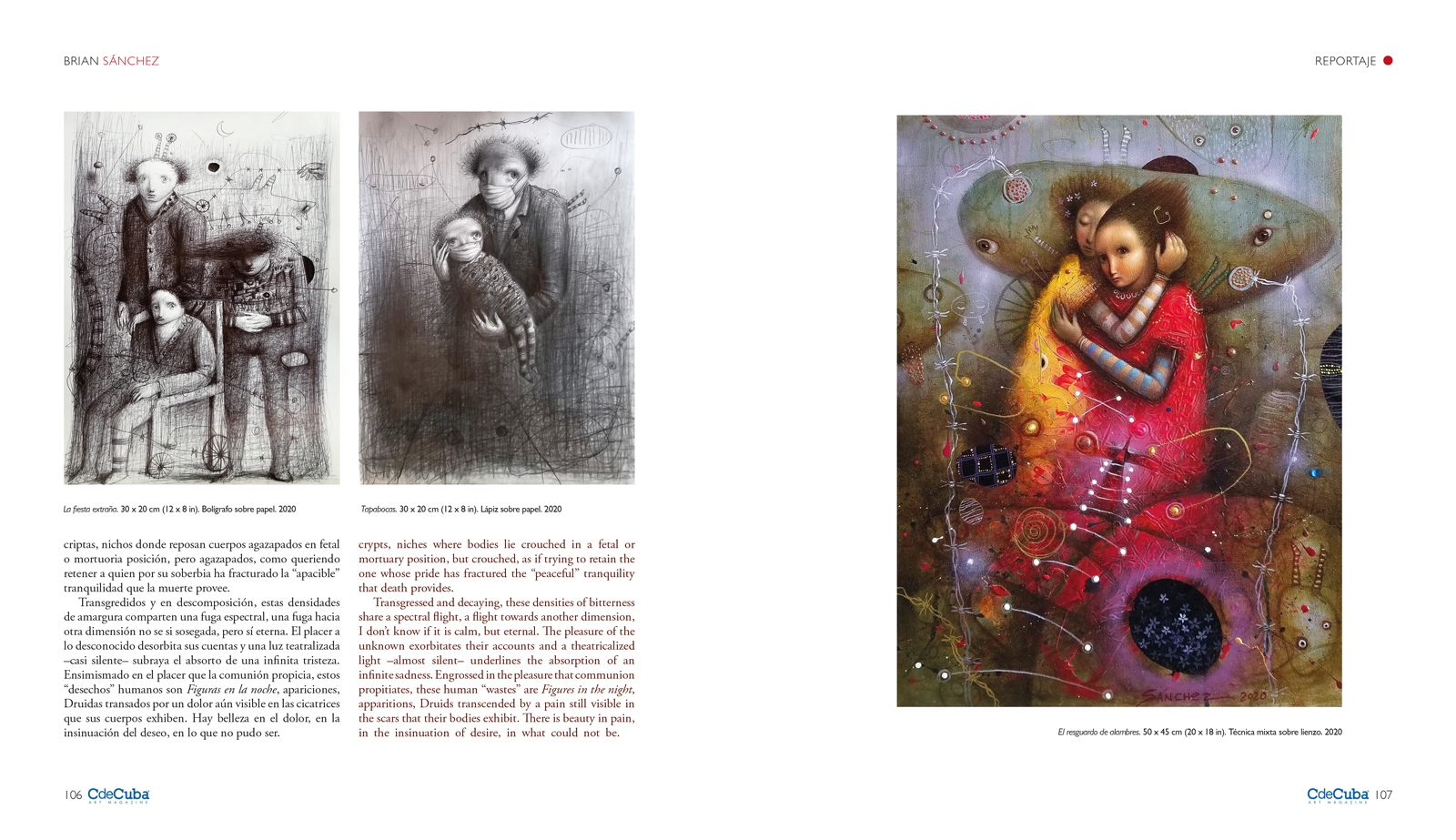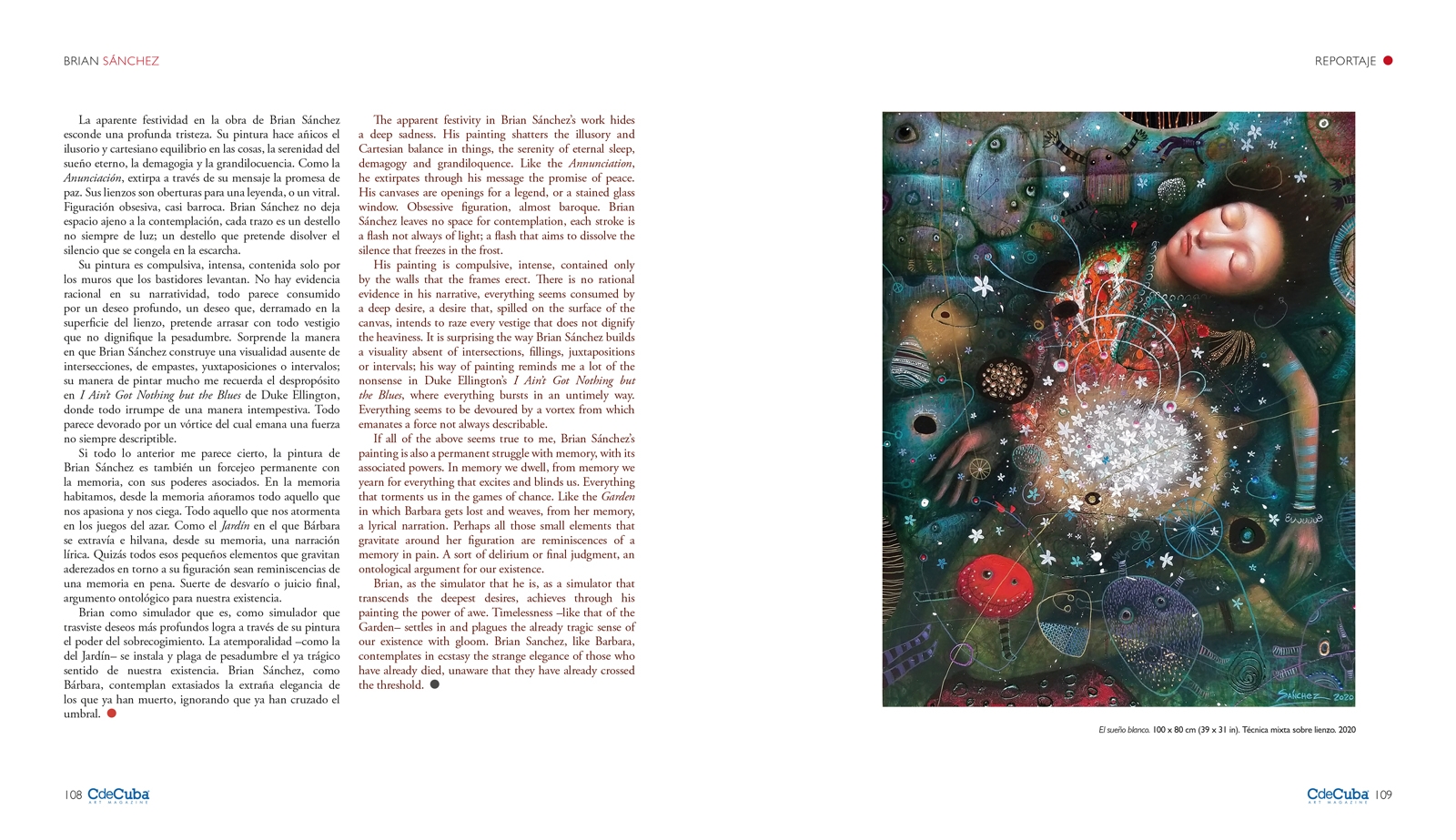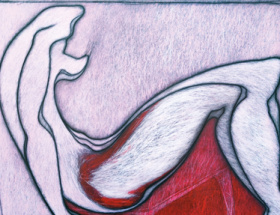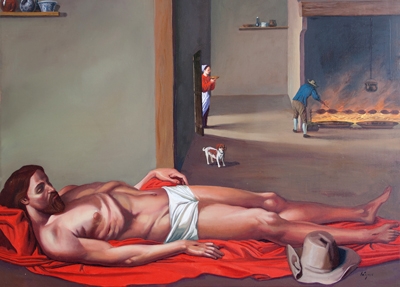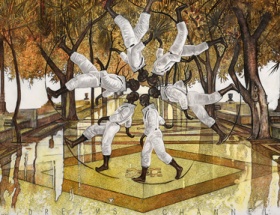Night Creatures
By Antonio Correa Iglesias
The Cuban political reality and discursiveness that has prevailed in the last decades has stood out for a sovereign dominance of the monochromatic. Everything has been established in a tone where there are no intermediates, derivations, degradations or simply polychromy. In contrast to this artificiality, Cuban visual arts and literature have reigned what Jose Lezama Lima called “supernaturality”, over-abundance. The above argument further reinforces Iván de la Nuez’s thesis on the existence of two contradictory and irreconcilable realities in contemporary Cuba. While society is moving more and more towards post-communism with all the elements of a market society governed by every man for himself, the totalitarian power and its institutional framework continue to reproduce the discursiveness of an outdated utopia.
It is in this context that the work in painting of Brian Sánchez, a Cuban who defies with his polychrome the range of grays that remind me so much of what was more than a quinquennium.
Although Brian Sánchez hides behind his brushes a strange passion, he knows –as the good simulator he is– how to disguise his deepest desires, his darkest frailties. Brian is not a painter, perhaps archeology, the exhumation of bodies in the humid and grotesque depths produce in him the pleasure of anthropophagy.
Professional cross-dressing, from ordinary to extraordinary subject. Brian exhumes through his canvases –a mere excuse to scrutinize the passages where death reigns a world beyond the imagined. A polyphony where the underworld gravitates towards an orbit of the absurd where everything, absolutely everything is possible. His canvases are mass graves, openings in the earth, crypts, niches where bodies lie crouched in a fetal or mortuary position, but crouched, as if trying to retain the one whose pride has fractured the “peaceful” tranquility that death provides.
Transgressed and decaying, these densities of bitterness share a spectral flight, a flight towards another dimension, I don’t know if it is calm, but eternal. The pleasure of the unknown exorbitates their accounts and a theatricalized light –almost silent– underlines the absorption of an infinite sadness. Engrossed in the pleasure that communion propitiates, these human “wastes” are Figures in the night, apparitions, Druids transcended by a pain still visible in the scars that their bodies exhibit. There is beauty in pain, in the insinuation of desire, in what could not be.
The apparent festivity in Brian Sánchez’s work hides a deep sadness. His painting shatters the illusory and Cartesian balance in things, the serenity of eternal sleep, demagogy and grandiloquence. Like the Annunciation, he extirpates through his message the promise of peace. His canvases are openings for a legend, or a stained glass window. Obsessive figuration, almost baroque. Brian Sánchez leaves no space for contemplation, each stroke is a flash not always of light; a flash that aims to dissolve the silence that freezes in the frost.
His painting is compulsive, intense, contained only by the walls that the frames erect. There is no rational evidence in his narrative, everything seems consumed by a deep desire, a desire that, spilled on the surface of the canvas, intends to raze every vestige that does not dignify the heaviness. It is surprising the way Brian Sánchez builds a visuality absent of intersections, fillings, juxtapositions or intervals; his way of painting reminds me a lot of the nonsense in Duke Ellington’s I Ain’t Got Nothing but the Blues, where everything bursts in an untimely way. Everything seems to be devoured by a vortex from which emanates a force not always describable.
If all of the above seems true to me, Brian Sánchez’s painting is also a permanent struggle with memory, with its associated powers. In memory we dwell, from memory we yearn for everything that excites and blinds us. Everything that torments us in the games of chance. Like the Garden in which Barbara gets lost and weaves, from her memory, a lyrical narration. Perhaps all those small elements that gravitate around her figuration are reminiscences of a memory in pain. A sort of delirium or final judgment, an ontological argument for our existence.
Brian, as the simulator that he is, as a simulator that transcends the deepest desires, achieves through his painting the power of awe. Timelessness –like that of the Garden– settles in and plagues the already tragic sense of our existence with gloom. Brian Sanchez, like Barbara, contemplates in ecstasy the strange elegance of those who have already died, unaware that they have already crossed the threshold.

